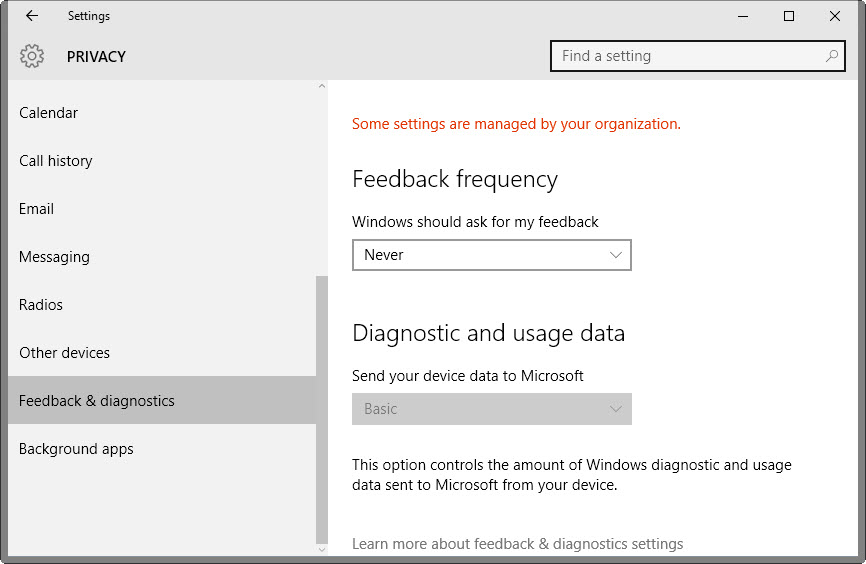To improve its image, Microsoft needs to open up
Microsoft has a track record of being extremely tight lipped when it comes to the decisions it is making. The company expanded this even further with the release of Windows 10 by releasing cumulative updates left and right that don't reveal anything about what is actually being updated.
That's not the only thing concerning users however. Privacy in general is a hot topic and while some -- like Ed Bott -- believe that customers have nothing to fear from Microsoft collecting telemetry data, others have issues trusting Microsoft on that as the company does not reveal exactly what is being tracked and does not provide options to disable all the tracking.
The main issue here is not that data is being collected, it is Microsoft's secrecy when it comes to telemetry on Windows 10 and that there is no off-switch available.
No one knows what is being collected exactly and how fine grained the information really are. Sure, we know what Microsoft reveals here and there in the operating system and on its website, but the information is far from complete which leads to guesswork and rumors.
For instance, Windows 10 users can switch the feedback & diagnostics data setting from full to enhanced or basic, but not disable telemetry completely unless they run the Enterprise version of the operating system.

A simple question that many privacy-conscious users would love an answer for is why Microsoft allows Enterprises to disable the sending of device data completely, while the option is missing from other version of Windows 10.
That's just analytics, some say, not different from websites tracking their visitors or Google or Apple tracking mobile users.
But there is a difference between the data that you make available when you visit a website, e.g. your browser version and operating system, and the data that you have on your PC.
Many users have important (to them) data on PCs, from private photos and documents to their browsing history or passwords. I'd argue that data on PCs is usually more important than data on mobile phones or tablets, and definitely more important than data handed over to websites when users are connecting to them.
At least some users want to be sure that their data is safe, and the best way to do that would be to disable telemetry and other data collecting activities completely, or for Microsoft to reveal exactly what it is collecting and what it is not touching.
If that is known, users can make an educated decision in regards to telemetry and data collecting, and either keep the feature enabled, tone it down, or disable it completely if Microsoft provides them with that option.
Windows 10 is without doubt the main focus currently, but the OneDrive incident highlights the same issue.
Microsoft announced a while ago that it would limit paying OneDrive customers to 1TB of data instead of unlimited data, would reduce paid storage upgrades from 200GB and 100GB to 50GB respectively, and cut free storage for users to 5GB.
The reason given at the time was that some customers abused the unlimited data Microsoft made available for all Office 365 customers.
This did not add up, as it made no sense to limit free customers for instance because of this, but it took Microsoft weeks before it revealed -- in passing -- that the reason for the decision was completely different.
It boiled down to simple economics, that unlimited storage was not economically feasible for the company.
Had Microsoft mentioned that to customers at the time of announcement, things would not have boiled over in such a extreme fashion in my opinion.
Now You: What should Microsoft do in your opinion?
This article was first seen on ComTek's "TekBits" Technology News

- Log in to post comments